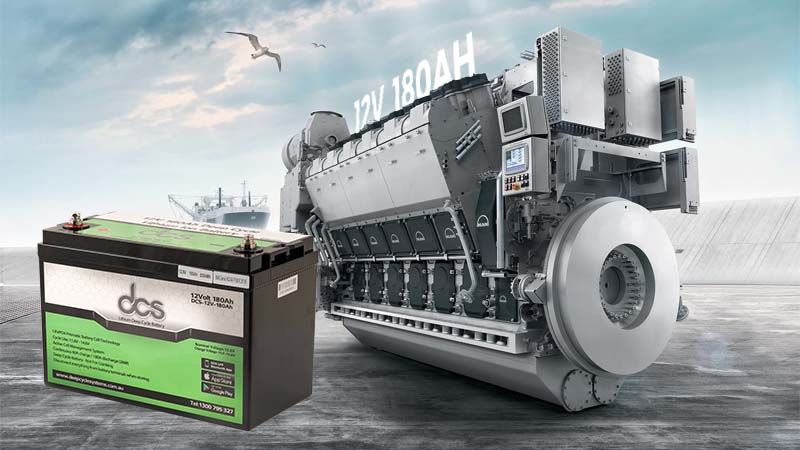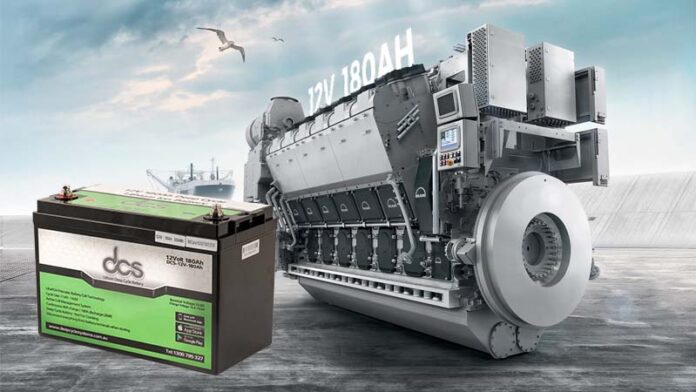Are you planning a camping trip and wondering which type of battery you should get for your RV? Look no further! Deep-cycle camper batteries are an ideal choice for powering your RV. These batteries provide the power needed to run various appliances, lights, and electronics in your RV, and they are designed to last for many years. In this blog post, we’ll cover everything you need to know about Marine RV Deep Cycle Battery, including types, maintenance, and how to choose the best battery for your needs.
What is a 12 volt deep cycle RV battery?
A deep cycle battery is a type of battery that is specifically designed to provide a consistent and steady amount of power over an extended period. Unlike other types of batteries that are designed to provide a quick burst of power, 12 volt deep cycle RV battery is built to provide a low and continuous discharge of power.
In the context of RVs, deep-cycle batteries are essential for providing power to various appliances, lights, and electronics in your camper. These batteries can withstand deep discharges without losing their ability to hold a charge, making them ideal for prolonged use in RVs.
Advantages of Deep Cell RV Battery
When it comes to powering your RV, Deep Cell RV Battery offers numerous advantages that make them the ideal choice for RV owners. Here are some of the key advantages of using deep-cycle batteries in your RV:
- Long-lasting Power: Deep cycle batteries are designed to provide a consistent and steady amount of power over an extended period. This means you can rely on them to power your appliances, lights, and electronics without worrying about running out of power quickly.
- Deep Discharge Capability: Unlike other battery types, deep cycle batteries can withstand deep discharges without losing their ability to hold a charge. This makes them perfect for RV use, as they can handle the demands of prolonged use without any issues.
- Versatility: Deep cycle batteries are versatile and can be used for a variety of applications beyond RVs. They are commonly used in boats, golf carts, and renewable energy systems. This means that investing in a deep cycle battery for your RV can also serve you well in other areas of your life.
- Low Maintenance: Deep cycle batteries require minimal maintenance compared to other battery types. With proper care, they can last for many years, making them a cost-effective choice for RV owners.
Types of Deep Cycle RV Batteries
Deep cycle RV batteries come in various types, each with its unique features and benefits. Understanding the different types will help you choose the best battery for your specific needs. Here are the most common types of deep-cycle RV batteries:
Flooded Lead Acid Batteries
These are the most traditional and widely used deep cycle batteries. They are affordable and reliable, making them a popular choice among RV owners. However, they require regular maintenance and ventilation due to their liquid electrolyte.
Absorbent Glass Mat (AGM) Batteries
AGM batteries are a newer technology that offers several advantages. They are maintenance-free, leak-proof, and can handle high discharge rates. AGM batteries are also known for their exceptional vibration and shock resistance, making them ideal for rough terrains.
Factors to Consider When Choosing a 12v Deep Cycle RV Battery
Choosing the right 12v Deep Cycle RV Battery is crucial for ensuring a reliable power source for your RV. With so many options available, it can be overwhelming to determine which battery is best suited for your needs. Here are some important factors to consider when making your decision.
First and foremost, you’ll need to determine your power requirements. Consider the appliances, lights, and electronics you plan on using in your RV and calculate their total power consumption. This will give you an idea of how much capacity your battery needs to have. It’s always better to overestimate your power needs to avoid running out of battery power unexpectedly.
Next, think about the size and weight of the battery. Depending on the space available in your RV and your weight restrictions, you’ll need to choose a battery that fits comfortably and doesn’t exceed your vehicle’s weight limit. Consider the dimensions and weight of the battery before making a purchase.
Maintenance Tips for Your Deep Cycle Battery
Taking proper care of your deep-cycle battery is essential for ensuring its longevity and optimal performance. Here are some maintenance tips to keep your deep cycle battery in top shape:
- Regularly check the water levels: For flooded lead acid batteries, it’s important to regularly check the water levels and add distilled water as needed. Keeping the water levels at the recommended level helps prevent damage to the battery plates and ensures efficient performance.
- Clean the battery terminals: Over time, corrosion can build up on the battery terminals, hindering the flow of electricity. Use a mixture of baking soda and water to clean the terminals, and then rinse with clean water. Applying a thin coat of petroleum jelly can also help prevent future corrosion.
- Avoid deep discharges: While deep cycle batteries are designed for deep discharges, it’s best to avoid fully discharging the battery whenever possible. Regularly recharging the battery before it reaches a low charge level will help extend its lifespan.
- Store the battery properly: If you’re not using your RV for an extended period, it’s important to store the battery properly. Disconnect the battery and store it in a cool, dry place away from direct sunlight and freezing temperatures. Remember to recharge the battery every few months to maintain its charge.
- Regularly inspect for damage: Check the battery regularly for any signs of damage, such as cracks or leaks. If you notice any issues, it’s best to replace the battery to avoid further damage or potential safety hazards.
Troubleshooting Common Deep Cycle Camper Battery Problems
As reliable as Deep Cycle Camper Battery is, they can sometimes encounter problems. It’s important to be prepared and know how to troubleshoot common deep-cycle battery issues to ensure a smooth camping trip. Here are some common problems you may encounter and how to troubleshoot them:
- Slow Charging: If you find that your deep cycle battery is taking longer than usual to charge, check the charger and make sure it’s functioning properly. Also, inspect the battery terminals for any corrosion or loose connections, as this can hinder the charging process.
- Overheating: If your battery is getting excessively hot, it could be a sign of overcharging or a faulty regulator. Check the charger settings and make sure it’s not overcharging the battery. If the problem persists, consult a professional to inspect the regulator.
- Low Voltage: If your appliances and electronics are not receiving enough power from the battery, it could indicate a low voltage issue. Check the battery voltage using a voltmeter and ensure it’s within the recommended range. If the voltage is too low, it may be time to replace the battery.
Maximizing the Lifespan of Your Deep Cycle Battery
Taking proper care of your deep cycle battery is essential for maximizing its lifespan and ensuring it provides reliable power for your RV. Here are some tips to help you make the most out of your battery:
- Regularly charge your battery: It’s important to keep your deep cycle battery charged, even when you’re not using your RV. If the battery sits unused for long periods, it can lead to sulfation and decrease its capacity. Make sure to recharge it every few months to maintain its charge.
- Avoid over-discharging: While deep cycle batteries are designed for deep discharges, it’s best to avoid fully discharging the battery whenever possible. Try to recharge it before it reaches a low charge level to prevent damage and prolong its lifespan.
- Use a smart charger: Invest in a smart charger for your deep cycle battery. These chargers monitor the battery’s voltage and adjust the charging process accordingly, preventing overcharging and prolonging battery life.
FAQs
You’ve made it to the FAQs section! Here, we’ll address some common questions and concerns about deep-cycle camper batteries. We hope this will help clear up any confusion you may have. So, let’s dive right in:
1. How long do deep-cycle batteries typically last?
Deep cycle batteries have a lifespan that can vary depending on various factors, such as usage, maintenance, and the specific type of battery. On average, deep-cycle batteries can last anywhere from 4 to 8 years. With proper care and maintenance, you can extend their lifespan even further.
2. Can I use a regular car battery for my RV?
While it may be tempting to use a regular car battery for your RV, it’s not recommended. Car batteries, also known as starter batteries, are designed for short bursts of high power to start an engine. They are not built to withstand deep discharges and prolonged use like deep cycle batteries. Using a regular car battery in your RV may result in reduced performance and a shorter lifespan.
3. How do I know if my deep cycle battery is fully charged?
To determine if your deep cycle battery is fully charged, you can use a voltmeter or battery monitor. A fully charged battery will typically read around 12.6 to 12.8 volts. Keep in mind that the voltage reading may vary slightly depending on the battery type and temperature.
Conclusion
In conclusion, deep-cycle camper batteries are the ideal choice for powering your RV during your camping trips. These batteries provide a consistent and steady amount of power over an extended period, making them perfect for running appliances, lights, and electronics in your RV.


